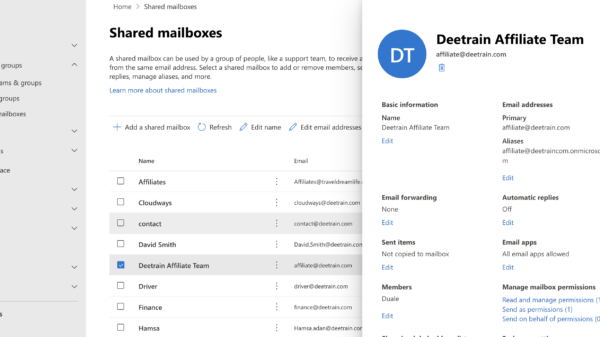
The profession of information technology (IT) provides excellent long-term career opportunities and employment development. If you’re interested in working in information technology, understanding what qualifications and abilities you’ll need to obtain a job may help you prepare. While an IT career requires a significant degree of teachable technical abilities, it also necessitates numerous soft talents that you may already have.
A bachelor’s degree is often needed; several companies prefer a master’s degree in computer science. Employers want to see at least three years of IT experience. Analytical, organizational, leadership, communication, and decision-making abilities are required for IT specialists.
Certifications may be an effective option for demonstrating to employers that you know your thing. We’ve prepared a list of the most popular help desk certifications. Obtaining these credentials will not only offer you an advantage while job searching, but they will also improve your total worth.
What qualifications and skills are required for an IT helpdesk position?
Certifications:
1. MCDST
2. MCTS
3. Security 5 Certification
4. CTSC
5. CNA
6. CST
7. CCNP
8. CIS
9. MS Windows 2000
10. CNCT
11. HDI
12. CCENT
13. CCNA
14. DCSE
15. SEMC
Skills:
1. Technical Skills.
2. Soft Skills.
We’ve collected a comprehensive list of help desk certifications and skills. This list is based on the frequency with which help desk professionals get certain credentials and how they usually mention them in their resumes.
1. (MCDST) Microsoft Certified Desktop Support Technician
Unmatched recognition as a Microsoft Certified Desktop Support Technician may help you increase your IT support career (MCDST). This shows your ability to quickly and effectively troubleshoot Windows desktop environments.
You also demonstrate that you have the soft skills to teach people about how to utilize Windows software and hardware and troubleshoot their operating system and application issues.
2. (MCTS) Configuring Microsoft Windows Vista Client
It is suggested that to configure Windows Vista properly; one should have at least one year of expertise in the IT sector. Phone assistance is provided in various settings, including retail locations and medium-sized businesses and enterprises.
When looking for candidates, organizations should be looking for candidates with expertise in addressing network connection problems, desktop operating systems, security, and applications. The login process, resetting passwords, and resolving most difficulties with desktop programs should also be included in their experience.
3.Security 5 Certification
If you are interested in studying computer networking and security fundamentals, obtaining the Security5 Certification is your first step. The Security+ curriculum offers fundamental networking literacy abilities so that people may go on to more complex IT opportunities.
4. (CTSC) Computer Technical Support Certification
How to set up and maintain a PC is tested in the Computer Technical Support exam. This exam is designed for technicians who have hands-on experience. Boot issues, hardware, network, software platforms, safety, specific hardware, and debugging are addressed in this course.
5. (CNA) Certified Novell Administrator
In a variety of work settings, such as professional offices and small enterprises, workstations or teams, and corporate information services organizations (CISOs), certified Novell administrators (CNAs) offer direct assistance to software users (IS).
6. (CST) Computer Service Technician
What computer technicians may anticipate seeing in the future is identifying the core areas of training, study, and expertise they’ll need to carry out their work, which is focused on maintaining, repairing, and updating the hardware and systems software for personal computers.
7. (CCNP) Cisco Certified Network Professional
Cisco, a networking expert with a Cisco Certified Network Professional (CCNP) certification, can build, configure, and troubleshoot local and wide area networks for corporate companies with networks ranging from 100 to more than 500 nodes.
Security, convergent networks, quality of service, virtual private networks, and broadband technologies are among the subjects covered in depth in the material.
8. (CIS) Certified Instrument Specialist
Technology is always evolving. Standardization is being worked on. Instrumentation continues to develop. It is a high and constantly shifting learning curve for Central Service employees, and the expectations put on them are increasing all the time.
The IAHCSMM provides the Certified Instrument Specialist exam to assist professionals in keeping up with rapidly changing medical technology. The exam tests knowledge and recognition of medical instruments and instrumentation, practice skills and is designed to help professionals stay on top of rapidly changing medical technology.
The Certified Instrument Specialist exam will assess your knowledge and skills in identifying and cleaning medical instruments. If you complete and pass the exam, you will be awarded the title of Certified Instrument Specialist (CIS).
9.MS Windows 2000
Our Microsoft Windows 2000 exam assesses your understanding of Microsoft’s Windows 2000 operating system and its features and functions.
This exam, which is intended for power users with extensive expertise, covers the following topics: Architectural overview of Windows 2000, the configuration of Windows 2000, troubleshooting, network administration, utilities, security, printers, and multimedia are all covered in this course.
10. (CNCT) Certified Network Computer Technician
Certified Network Computer Technicians must have a solid understanding of computer electronics fundamentals and Internet networking technologies that will contribute to various sectors of the computer business.
Upon completing the CNCT program and acquiring the necessary skills, talents, and knowledge, the CNCT will be qualified to work in any area of the computer business.
The CNCT should be a lucrative and efficient member of the computer industry’s workforce with just a minimum amount of training in particular individual products.
11. (HDI) HDI Support Center Analyst
Obtaining this certification confirms that front-line technical support workers have the knowledge and abilities to offer high-quality service and support to their customers.
Moreover, it guarantees that they grasp service management procedures and best practices while also giving them a competitive advantage in their job search.
12. (CCNET) Cisco Certified Entry Networking Technician
Many successful networking professions begin with the Cisco CCENT (Cisco Certified Entry Networking Technician) certification, which certifies the abilities needed for entry-level network support jobs.
Individuals should build, manage, and troubleshoot a small corporate branch network, including the ability to implement and maintain fundamental network security.
The CCENT certification is the first step toward obtaining the CCNA certification, which includes medium-sized business branch networks with more complicated connections and linkages across networks.
13. (CCNA) Cisco Certified Network Associate Security
Associate-level knowledge and abilities needed for securing Cisco networks are assessed and certified by the Cisco Certified Network Associate Security (CCNA Security).
Network professionals who have a Cisco Certified Network Associate (CCNA) Security certification have shown their ability to build a security architecture, identify risks and vulnerabilities in networks, and mitigate security threats.
14. (DCSE) Dell Certified Systems Expert
With the Dell Certified Systems Expert program, customers may learn about hardware maintenance and repair.
DCSE equips independent service maintenance professionals or businesses with the knowledge and abilities required to maintain their equipment.
Client systems (portable computers, desktop computers, and workstations) and servers are the only systems for which technicians must pass an exam to get accreditation. If a technician wishes to get accredited in both fields, they may do so.
15. (SEMC) Software Engineering Master Certification
To successfully obtain this professional competency certification, the candidate must first pass two advanced applied modules and earn Certificates of Proficiency in twelve critical knowledge areas:
Software Engineering Requirements, Software Engineering Design, Software Engineering Construction, Software Engineering Testing, Software Engineering Maintenance, Software Engineering Configuration Management, Software Engineering Quality, Software Engineering Processes, Software Engineering Models & Methods, Software Engineering Management, Software Engineering Project Management, and Software Engineering Economics.
Technical Skills
You will find these “demanding” job skills in the IT sector. Additionally, keep track of what information and abilities you currently have and which you might acquire by participating in training, acquiring certificates, or gaining on-the-job experience.
- Database Management
- Network Configuration
- Technical Writing
- Operating System Knowledge
- Social Media Management
- Hardware Deployment
1. Database Management
A database is a software application that organizes and saves data. In most IT jobs, you will be expected to utilize various data input forms or work with databases. Knowing these fundamentals is important for most IT positions. Maintaining a database demands attention to detail and accuracy. One of the qualifications for this position is the ability to utilize Standard Query Language (SQL).
2. Network Configuration
When it comes to most professions, candidates need to have a solid understanding of networking skills. People who know more about networks have the potential to be network administrators. Networks and managing them require expertise such as setting up IP networks, Wi-Fi routers, cloud services, and coding.
3. Technical Writing
To rise above your competition, you must be able to express difficult instructions and concepts in an easier-to-understand manner.
Complex technological processes and systems sometimes need textual communication describing how they work. This information may be difficult to understand, and it’s vital that you can talk to your customers, manufacturers, and other office employees and convert complicated concepts into easy-to-understand language.
Depending on the work, you will be required to create various documentation, online material, or press releases.
4. Operating System Knowledge
An essential IT talent knows how to operate and repair different operating systems. The more systems software you have expertise in, the more attractive you will be to employers considering switching to a new system in the future.
5. Social Media Management
By mastering the openings and breakaways of social networking sites, you’re equipping yourself with a useful talent that future employers will notice. A lot of firms find it helpful to assist their company with their content management system, search engine optimization, and web analytics.
6.Hardware Deployment
Physical equipment, including shipment, unloading, and setup, is involved in hardware deployment. It is important to know how to detach and reassemble complicated equipment. Military members, for example, must learn this particular ability whether they are sent to a training site or sent abroad.
Soft Skills
While IT focuses on technology, it’s essential to have soft skills. Think about how well you now perform in these soft skills and areas in which you might improve.
- Leadership
- Creativity
- Communication
- Problem-solving
- Analytical abilities
- Organization
- Flexibility
1. Leadership
Leading a team and performing well will be important in your IT profession. Task delegation, goal setting, and dispute resolution will be important abilities to have.
2.Creativity
A valuable talent for IT employment is creativity, which spawns breakthrough ideas and solutions. To enhance or improve an existing process, you may have to develop a whole new concept. Additionally, your business may want you to utilize your knowledge of technology to expand your company.
3.Communication
Because of all the communication, the IT sector needs huge amounts of it. As part of a team in IT security or as a developer, you will be required to interact with managers and coworkers to assist them with technical problems.
As part of the communication process, written and verbal messages are used, especially in emails or telephone conversations. You must pay attention, absorb information, and then provide useful comments on difficult topics.
4.Problem-solving
As an IT expert, one of your primary tasks is addressing issues. In addition to regular assignments, you may also be contacted by email or phone every day to assist someone else with their technical issues. If you like solving software or system problems, or unstartable equipment, you may enjoy an IT career.
5.Analytical abilities
Analytical abilities are required for IT employment. As a result, you will detect issues before they occur and then analyze patterns to collect important information, such as indications of critical performance metrics.
6.Organization
A well-arranged workplace and desktop PC help you be more productive and effective. A lot of multi-tasking is required in IT positions, so making sure your workspace is tidy and in order can help you remain on target.
An efficient and effective way to estimate the duration of a project is to consider how important the various jobs are and how well you manage your time.
7.Flexibility
In the IT industry, it’s critical to be flexible every day. Consider, for example, that you will often encounter last-minute modifications to workarounds on projects that you need to handle right away. Adroitness in adapting to change and fast thinking will serve you well.









